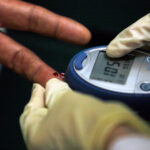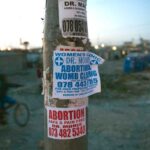Finance Minister Pravin Gordhan has not yet revealed how the government will fund its National Insurance scheme.
Finance Minister Pravin Gordhan’s budget speech did not shed light on how the government will fund its National Health Insurance (NHI) scheme, but he did commit to releasing more details “shortly”. The NHI white paper, which was published in December, provides little detail of how the scheme will be funded. “The challenge will be whether the treasury’s position paper will contain solid recommendations of financing mechanisms that state where the money will come from,” said health economist Daygan Eagar.
The white paper does not identify a specific source of funding for the NHI. Instead, the document outlines “five alternative tax scenarios for funding the NHI shortfall by 2025/26”. These scenarios include the “introduction of a payroll tax, a surcharge on taxable income and increases in the rate of value added tax”.
Gordhan has budgeted R4.5-billion for the renovation of healthcare facilities in the eleven NHI pilot districts. The 2016/17 financial year marks the final year of the NHI pilot phase.
R740-million is allocated “to strengthen tuberculosis (TB) programmes” and “R1-billion for expansion of the antiretroviral (ARVs) treatment” programme. South Africa has the largest state-funded ARV-programme in the world with 6.8-million people on treatment.
“It is positive that TB and HIV continue to be funded well. That money should be directed to underserved areas and rural areas which are generally under-resourced. These areas are often more expensive and difficult to services around HIV and TB,” said Eagar.
Gordhan has proposed that sugar joins tobacco and alcohol on the list of sin taxes by April 2017 to help reduce excessive sugar intake. Numerous studies have linked a high sugar intake to obesity. According to a 2014 study published in The Lancet South Africa is the fattest nation in sub-Saharan Africa.
A 2015 Priceless SA study from the University of the Witwatersrand, published in the Journal of Public Health Nutrition, estimated that a 20% sugar tax could bring an additional R7-billion a year for the government. Gordhan did not announce what percentage of sugar tax he is considering.
Ina Skosana was a health reporter at Bhekisisa.





